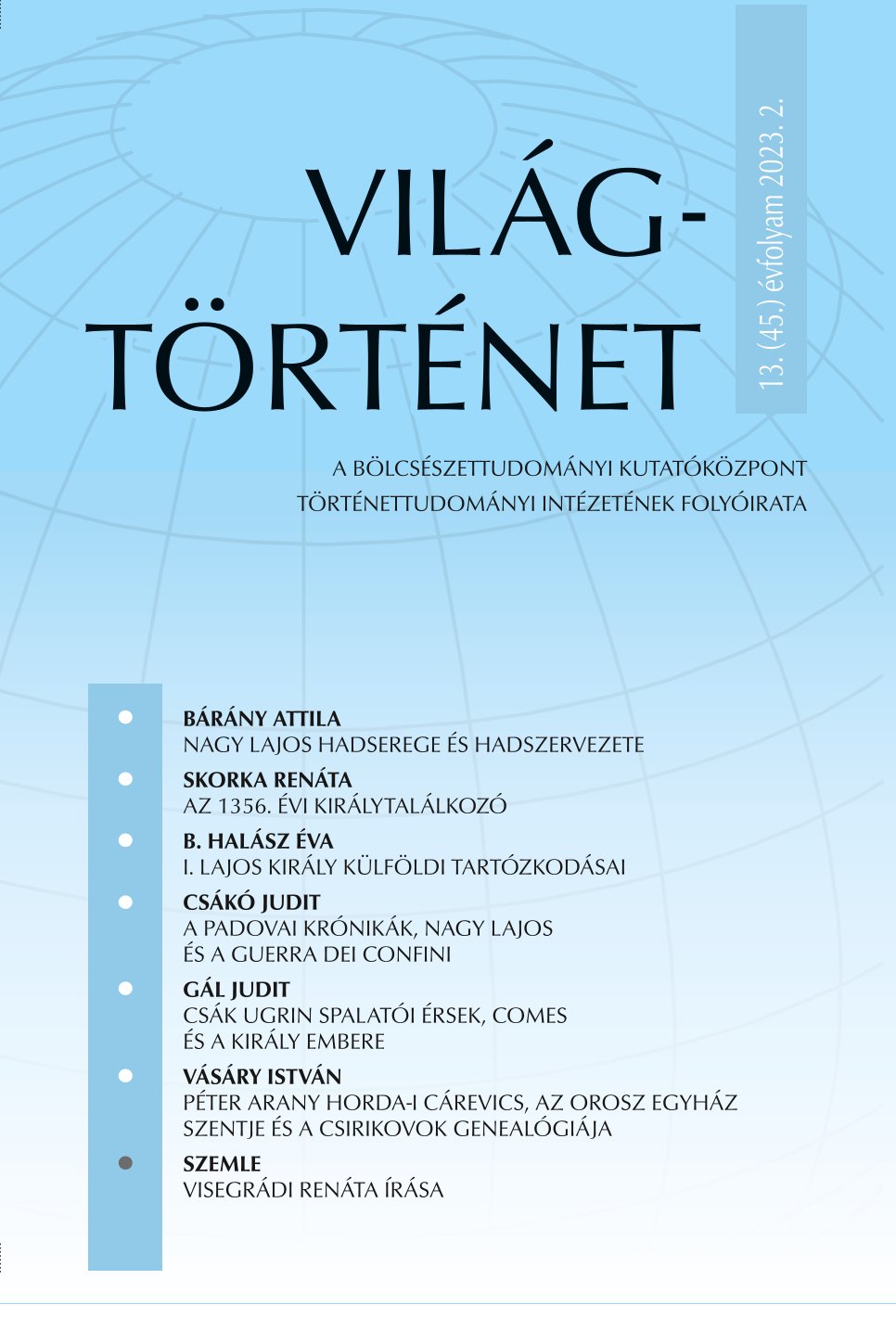Csák Ugrin spalatói érsek, comes és a király embere
Ugrin Csák, the Archbishop and Count of Split, and the Man of the King
Author(s): Judit GálSubject(s): 13th to 14th Centuries
Published by: Magyar Tudományos Akadémia Bölcsészettudományi Kutatóközpont Történettudományi Intézet
Summary/Abstract: Dalmatia had a special place in the Kingdom of Hungary from the beginning of the 12th century when King Coloman took over the Central and North Dalmatian towns. The royal authority over the territory was rather loose, with no Hungarian royal army stationed in the area and no permanent secular representative of royal power. The archbishops of Split played a special role in maintaining relations between the royal court and the Dalmatian cities during the Árpád period, and in enforcing the royal will on occasion. Of the archbishops, Ugrin stood out, although he held office for only four years, because was appointed not only archbishop of the city but also the count of Split during 1244–1245. Such a combination of secular and ecclesiastical offices was unprecedented, and in the case of Ugrin, the dual election was the result of direct royal intervention. Previously, the Hungarian kings had not interfered in the election of the secular leaders of the cities, so Ugrin was a herald of a new era. Ugrin’s term of office came at a time when Dalmatian urban society was undergoing many changes, with communal development and the adaptation of the reforms of the Lateran Council being a source of social and economic tension, while the Hungarian king was seeking to restore order in the region after the war between Split and Trogir. This paper examines Ugrin’s role and position, and focuses at how he responded to the conflicts and potential conflicts of interest that arose from his offices. Ugrin, coming from the court of Duke Coloman of Slavonia, had an excellent knowledge of the region, and thanks to his upbringing and background as a Hungarian prelate, he was not unfamiliar with the settlement of affairs, including military ones. His dual role, which could be described as a triple role in view of the royal mandate, and his often conflicting interests, placed the archbishop-count at the centre of a series of social conflicts and changes, against whom there was dissatisfaction on the part of both the city and the chapter of Split. However, Ugrin’s focus was essentially on his royal duties, in which he succeeded in maintaining stability, and his office marked the beginning of a new Hungarian royal system over the towns, which, however, disappeared after barely two decades as the royal power weakened.
Journal: Világtörténet
- Issue Year: 2023
- Issue No: 2
- Page Range: 279-297
- Page Count: 19
- Language: Hungarian

